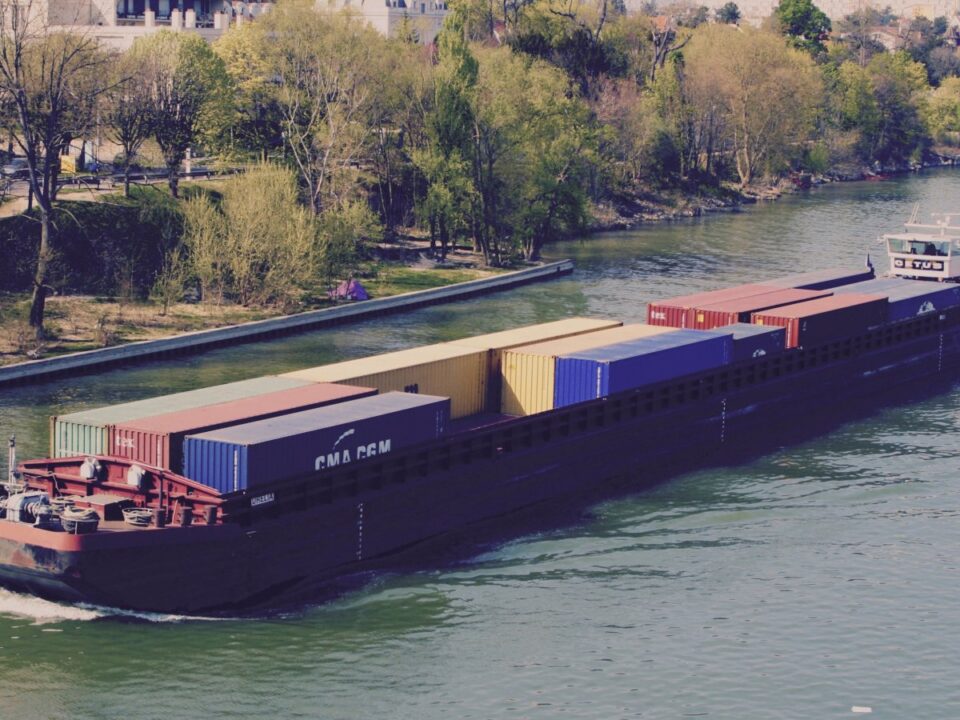
How Vendor Managed Inventory (VMI) Strengthens Supply Chain Resilience and Collaboration
To optimize inventory management, retailers and suppliers are increasingly turning to Vendor Managed Inventory (VMI) tools that transfer the responsibility…
Bona: Building Operational Excellence with Solochain WMS Read the use case

The main issue for logistics service providers is not knowing how to reconcile quality of life with urban logistics constraints amidst increasingly demanding client requirements. Is it truly possible to keep traffic moving swiftly when delivery requests are overflowing? What about ensuring rapid transit of merchandise at reduced transportation costs?
From a logistics point of view, today’s consumers have very contradictory requirements. They want to have things delivered wherever and whenever they choose for a small price, without incurring any negative environmental or social consequences. It is a sensitive subject much resembling a Gordian knot, and will remain so as long as each party’s goals seem to be opposing.
Further reading: 3PL: the advantage of flexibility for retailers
Urban logistics equipment repair has imposed itself as a solution to reduce last-mile delivery costs, which make up nearly 20% of merchandise transportation fees. Additionally, high prices and shortages of city land have compelled payers and 3PLs to invent a new kind of logistics platform.
Logisticians are now confronted with a major challenge: proposing new organizational frameworks that are urban-oriented, environmentally friendly, and suited to sales policies in effect in the investment territory. Several experiments currently being tested have aimed to use existing railway or waterway land reserves, or to develop mixed logistics hotel concepts to host a multitude of activities.
For several years now, experiments have abounded in the fields of multimodal transportation and shared logistic platform structuring in the urban environment. We’ve compiled a list of examples below.
The number one option explored to reconcile urban logistics and quality of life is adoption of a multimodal strategy with several distributors during the testing phase. For instance, supplying Monoprix stores in Paris combines rail transportation (from warehouses to a logistics platform in Bercy), delivery by gas-powered trucks equipped with anti-noise devices and also by electric vehicles operating in the consumer traffic flow.
Franprix stores (Casino Group) receive deliveries in the center of France’s capital via the Seine River through a partnership between the transporter Norbert Dentressangle, Ports de Paris and Voies navigables de France. This river transport is ensured by the Belgian operator Blue Line Logistics for delivery of heavy materials. The city of Saint-Étienne, on the other hand, chose to recycle a former tramway unit for use with freight, in order to swiftly bring the project to completion.
With regard to the organization and standardization of transportation bound for city centers, Metropolitan Lille recently distinguished itself by implementing a multimodal distribution center. The multi-activity logistic space is organized into a 19-acre space in the city’s harbor area.
The Saint-Étienne metropolitan area has also become a veritable innovation laboratory, through its shared platform for city center merchandise distribution via a fleet of electric vehicles. In Paris, the Chapelle International project is a full-scale test, with construction of a 148,000 sq. ft logistics hotel located in an abandoned railway site near Porte de la Chapelle (18th arrondissement).
Although more than a few payers have invested in urban logistics, the subject still poses a major problem for 3PLs in business with distributors who refuse to receive deliveries at the same time as their competitors. Luckily, this reluctance does not prevent transporters from investing in such initiatives.
As is the case with the company XPO, which opened a logistics platform in Spain dedicated to last-mile delivery, “we are delighted at the idea of using our last-mile expertise to help clients in Spain build consumer loyalty through a quality client experience, right until deliveries reach their home”, adds Luis Gomez, Director of Transport for XPO.
On the same topic: MANQUE LE LIEN >> 3PL and payers: the nearer, the better

To optimize inventory management, retailers and suppliers are increasingly turning to Vendor Managed Inventory (VMI) tools that transfer the responsibility…

In an ever-evolving logistics environment, agile and precise warehouse resource management is essential to remain competitive. With increasing volumes driven…

France’s electronic invoicing reform relies on a Y-architecture, where Partner Dematerialization Providers (PDPs) play a central role in issuing and…

Work with our team to build your ideal supply chain software stack and tailor it to your unique business needs.